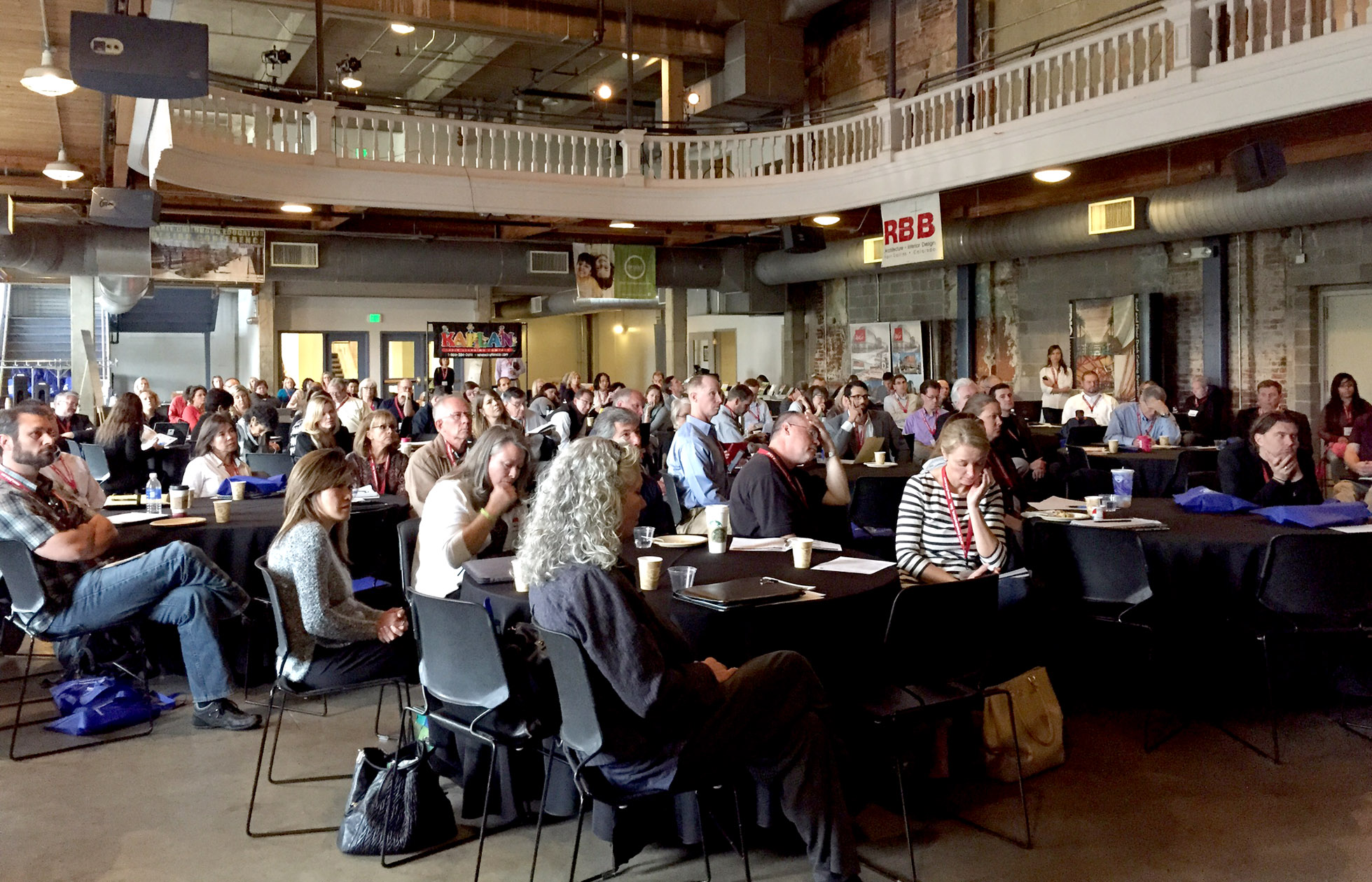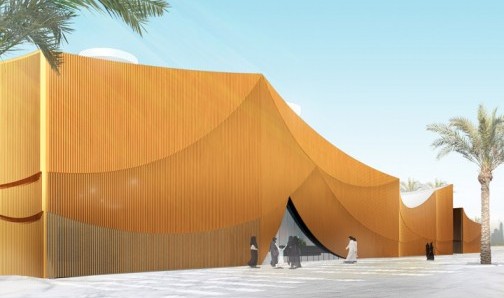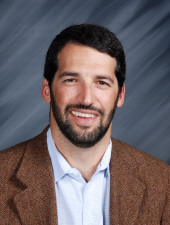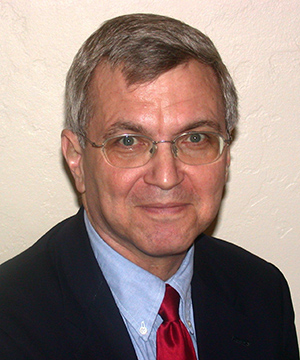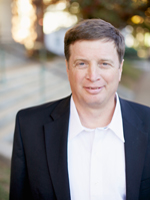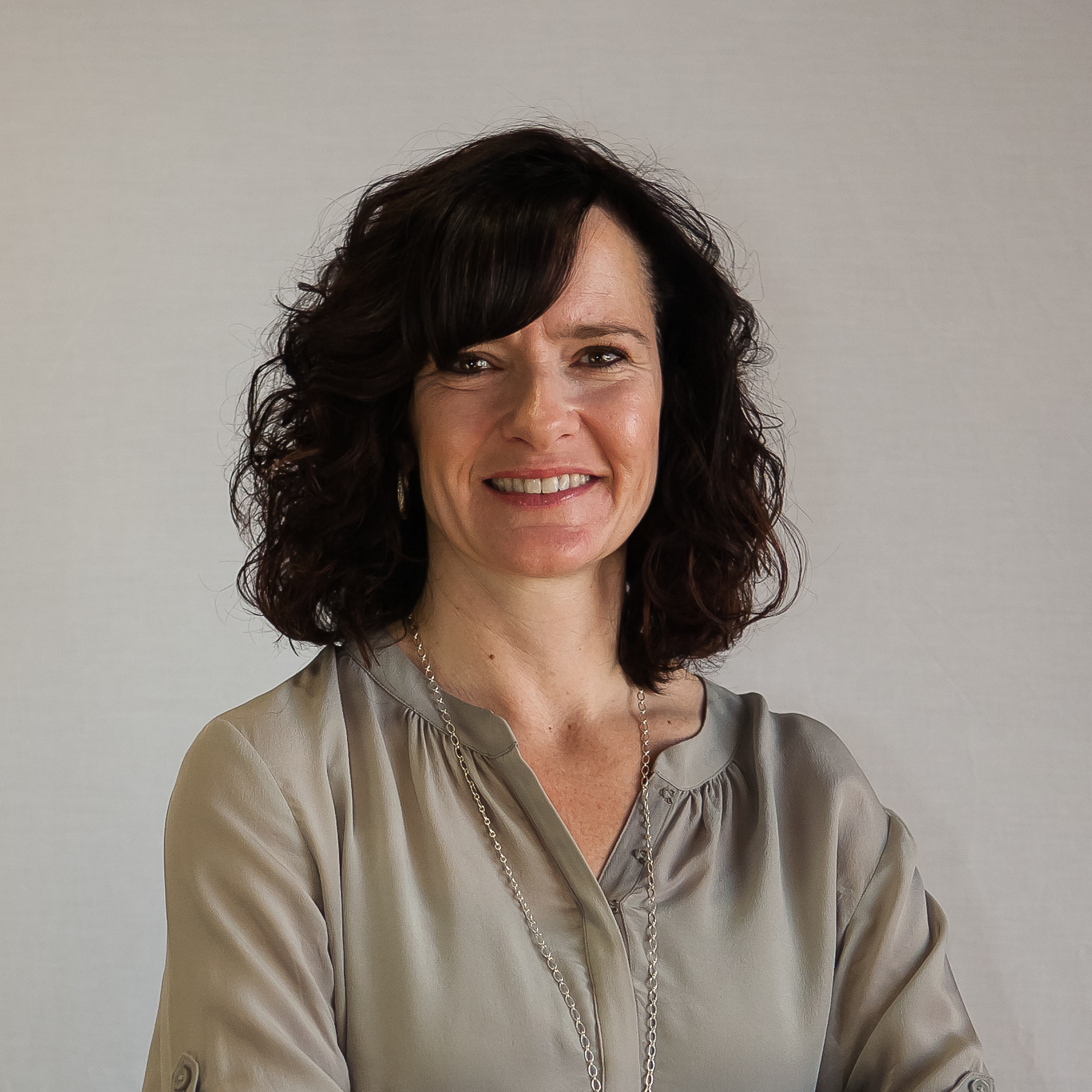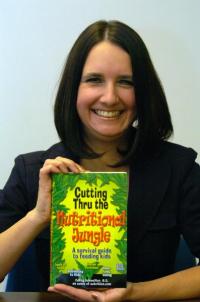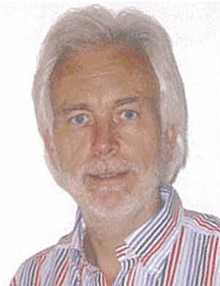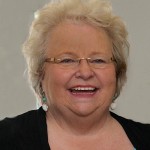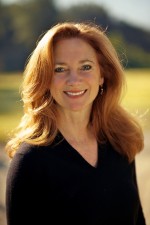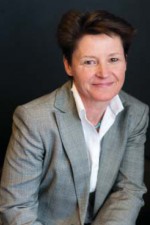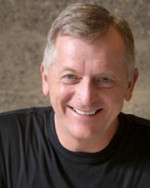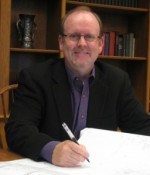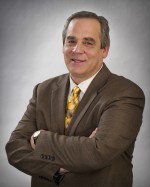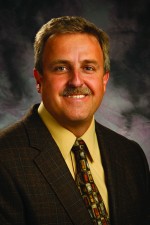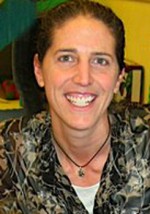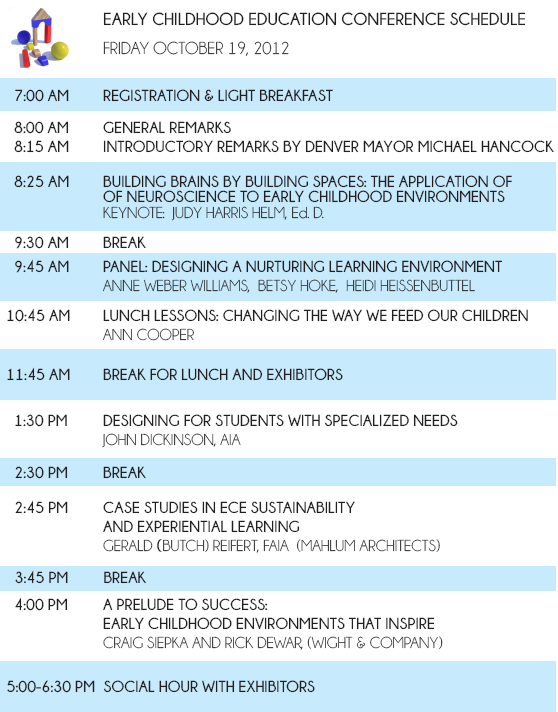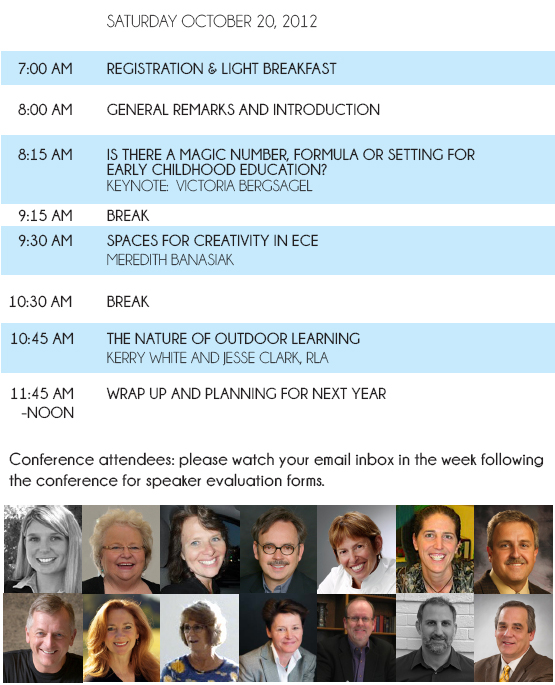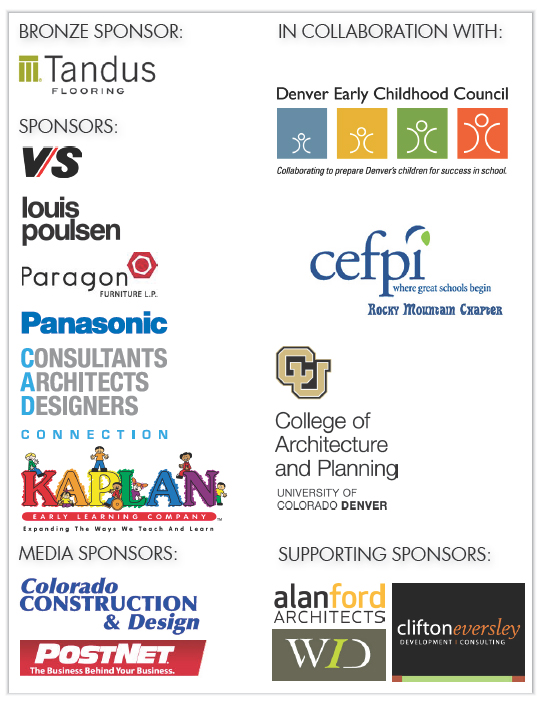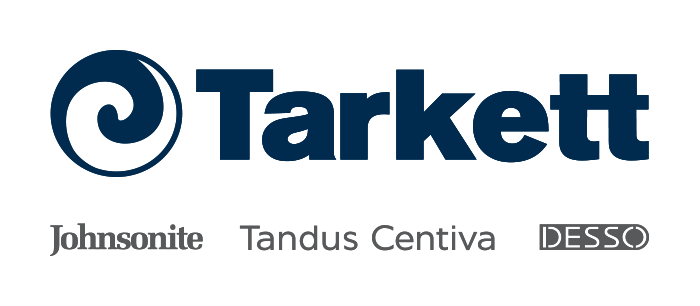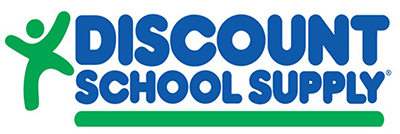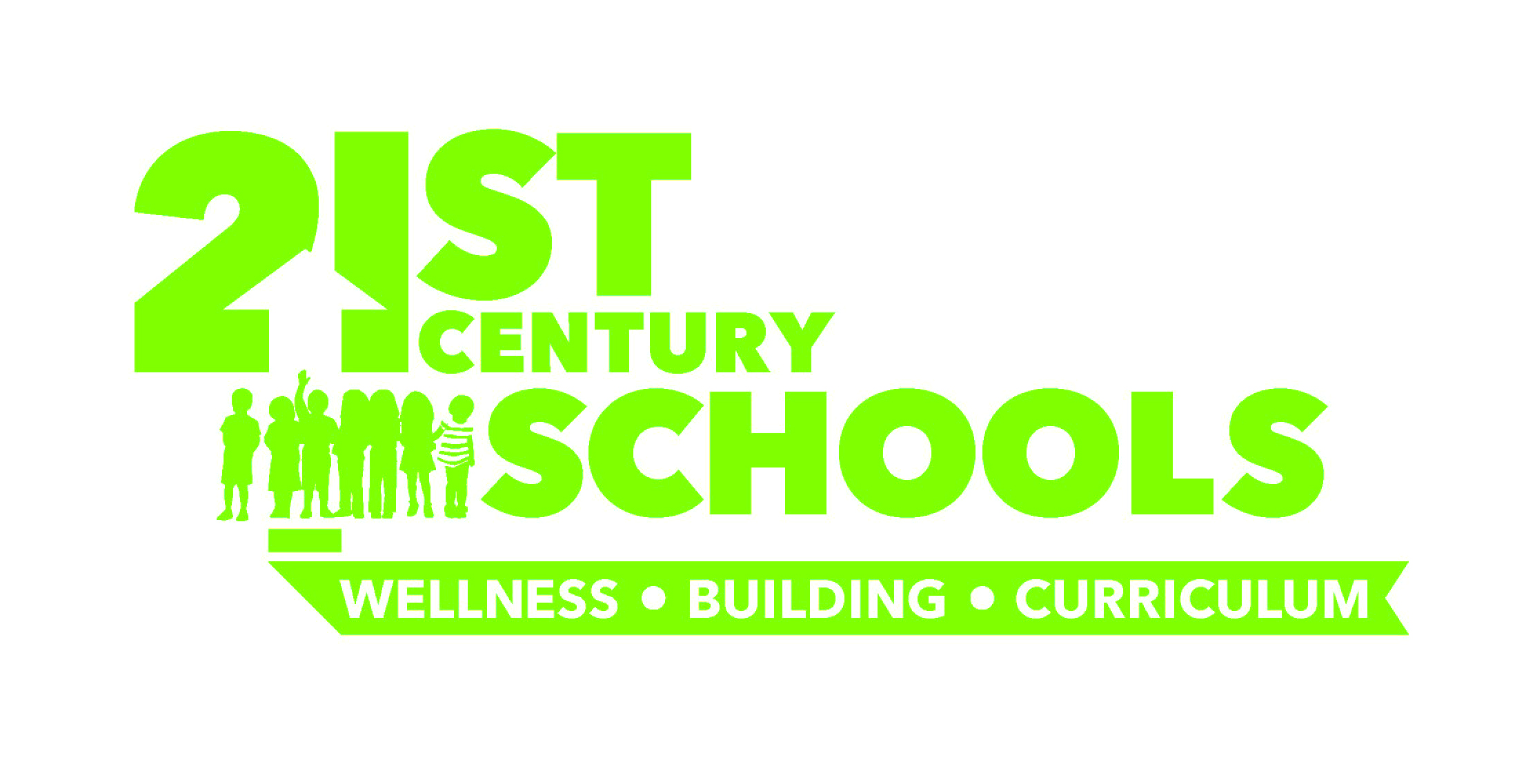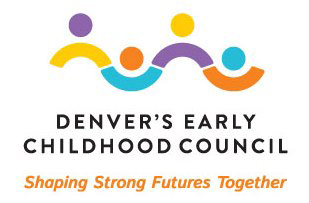2014 Early Childhood Design Conference
The Early Childhood Design Conference was held at the Tivoli Student Union, Auraria Campus, Denver, Co. on Denver on Friday, October 24, 2014.
Thank you to all who attended this year’s conference. The event was a great success, and we had some fantastic, thought provoking and inspirational speakers!
Speakers
 Keynote John Ratey, M.D.
Keynote John Ratey, M.D.
John J. Ratey, MC, is an Associate Clinical Professor of Psychiatry at Harvard Medical School, research synthesizer, speaker, and best selling author. An internationally recognized expert in Neuropsychiatry, Dr. Ratey has published over 60 peer reviewed articles, and 9 books published in 14 languages, including the groundbreaking ADD-ADHD “Driven to Distraction” series with Ned Hallowell, MD. With the publication of his recent book, “Spark-The Revolutionary New Science of Exercise and the Brain,” Dr. Ratey has established himself as one of the world’s foremost authorities on the brain-fitness connection. He serves as Adjunct Professor at National Taiwan Sports University and is Reebok’s Ambassador for Active Kids.
Recognized by his peers as one of the Best Doctors in America since 1997, Dr. Ratey and his work are frequently profiled in the media, where he’s been featured on ABC, CBS, NBC, PBS and NPR, as well as in The New York Times, Newsweek, The Washington Post, US News and World Report, Men’s Health, and other national publications.
Click here to read more about Dr. John Ratey.
Announcing CEBRA with Dr. Walter Gilliam
The 2014 ECE Design Conference is pleased to announce the upcoming collaborative presentation of CEBRA co-founder, Mikkel Frost, and last year’s keynote speaker, Dr. Walter Gilliam!
The Salama bint Hamdan Al Nahyan Foundation is investing significant resources in improving early childhood development by building the Salama bint Hamdan Al Nahyan Center of Excellence in Early Childhood Development. In a very innovative move, the Foundation formed a partnership with the early childhood learning experts at the Yale University Child Study Center and an extremely creative and imaginative architecture firm in Denmark, CEBRA. Their task was to incorporate a full range of developmental science regarding how children develop mentally, emotionally and physically and incorporate that science into the design of the most optimal early childhood learning center.
Attendees will hear a discussion between last year’s keynote speaker, Dr. Walter Gilliam, Director, Yale Child Study Center and Mikkel Frost, one of the founding partners of CEBRA Architecture regarding their collaboration in designing the Center. They will discuss how cutting edge developmental science is best used to re-imagine how young children can best achieve their learning potential, in a wide ranging discussion that blends architecture and science. Design concepts for the Center will be shared-attendees will see what will soon be one of the world’s premiere centers for early childhood learning and development.
Speaker Cyrus Weinberger
Principal, Red Hawk Elementary School
“One of the cornerstones (of our school) is certainly our movement program,” says Weinberger. “We believe it’s important to let kids move and enjoy school. If you do those things, you’re going to get much more mileage out of students in the classroom.”
Red Hawk Elementary School opened August 18, 2011 in Erie, Colorado, with Cyrus Weinberger as the principal. Much of Red Hawk’s program is inspired by the book Spark, by Dr. John Ratey. Eighty-eight percent of Red Hawk third through fifth graders say they look forward to coming to school, 90 percent plus of parents are excited their child attends Red Hawk, and they were the only school in the district last year that improved 100 percent on all tests, at every grade level, in every content area.
Cyrus’s career in education was ignited by his decision in 1996 to spend 9 months teaching in a rural village in Northern Thailand. After obtaining a MA in Elementary Education from the University of Northern Colorado, he taught 4th grade for 6 years at Riverview Elementary in Durango, CO. In 2006 he received an Ed.M in School Leadership from the Harvard Graduate School of Education. While in Cambridge, MA he had the opportunity to work for Education Matters as an educational consultant evaluating Special Education Programs in Boston schools. In the fall of 2006, he became the assistant principal of Superior Elementary in Boulder Valley School District, followed shortly by becoming the principal of Ryan Elementary (a math & science focus school) in Lafayette in 2008. His current position as principal of Red Hawk Elementary School began when the school opened in 2011.
Click Here for a 2013 article on Exercise & the Brain from Colorado Public Television 12 featuring Cyrus Weinberger.
Speaker Dr. Larry Schweinhart
The Perry Preschool Project is one of the most famous educational studies completed in the last half-century. Spanning nearly 40 years, it examines the impact of a quality preschool program on the lives of 123 children born into poverty and considered to be at a high risk of failing in school. The HighScope Perry Preschool Study used a rigorous experimental design to identify the short- and long-term effects of this pioneering program for young children born in poverty. The program enabled them to plan, do, and review their own learning activities. Program participants were better prepared for school, had higher achievement test scores throughout school, and were more likely to graduate from high school. As adults, they had a higher employment rate and higher earnings and committed only half as many crimes. The return on investment in the program was at least seven times as great as the investment. The study and several others like it have inspired many to strive for similar programs.
Larry Schweinhart is an early childhood program researcher and speaker throughout the United States and in other countries. He has conducted research at the HighScope Educational Research Foundation in Ypsilanti, Michigan, since 1975, served as its president from 2003 through 2013 and is now president emeritus. He has directed the HighScope Perry Preschool Study through age 40, the Michigan School Readiness Program Evaluation, HighScope’s Head Start Quality Research Center, and the development and validation of the Child Observation Record. Dr. Schweinhart received his Ph.D. in Education from Indiana University in 1975. He and his wife have two children and five grandchildren.
Click here for Larry’s profile with the National Institute for Early Education Research.
Speaker Robert Moje, FAIA
A founding principal of VMDO Architects, Bob is a passionate advocate for today’s “New Learner.” He leads the firm’s public K-12 projects, directing the design teams not just to create great schools, but to create schools that solve the mission of the building: to inspire students to become active participants in the learning process. In the current fast-paced Information Age where students can’t learn enough, fast enough, solving that mission has required a new direction in educational architecture. One where every school space—hallway, cafeteria, playground, and classroom alike—presents an opportunity for learning.
Part of his commitment to educational facility design stems from his own intellectual curiosity and desire to learn. An avid student of brain science, Bob has built an extensive network of experts in a variety of fields and reads extensively in search of new insights into the learning process. He continually partners with diverse organizations to expand educational planning and design, including a collaboration with the National Institutes of Health to study the environmental effects of school buildings on children’s health. Bob is also partnering with the US Green Building Council to develop a LEED credit for school buildings that contribute to the physical fitness and health of its occupants.
Click here for Mr. Moje’s full bio.
Project Presentation Center for Early Childhood Development
The Salama bint Hamdan Al Nahyan Foundation is investing significant resources in improving early childhood development in Abu Dhabi, UAE and the United Arab Emirates. As a part of their investment portfolio, they are building the Salama bint Hamdan Al Nahyan Center of Excellence in Early Childhood Development, which is a state of the art early childhood learning center designed using the best available science on how children learn and grow.
Mikkel Frost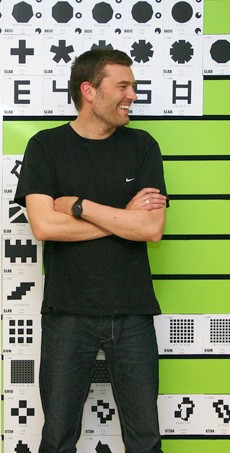
Mikkel Frost is a co-founder of the Danish architecture and design practice, CEBRA. Frost will be joined by last year’s keynote speaker, Dr. Walter Gilliam, to discuss CEBRA’s early childhood development project in Abu Dubhai.
CEBRA is run by a management team consisting of the three founding partners, who are at the head of the office’s creative work and strategic development. The three partners are all members of Danish Architects’ Association and CEBRA is a member of the Danish Association of Architectural Firms.
Walter Gilliam
Walter S. Gilliam is the Director of The Edward Zigler Center in Child Development and Social Policy and Associate Professor of Child Psychiatry and Psychology at the Child Study Center, Yale School of Medicine. He is a member of the board of directors for ZERO TO THREE (National Center for Infants, Toddlers and Families) and Child Care Aware of America (National Association of Child Care Resource and Referral Agencies); a research fellow of the National Institute for Early Education Research (NIEER); and a former Senior Advisor to the National Association for the Education of Young Children (NAEYC). Dr. Gilliam is co-recipient of the 2008 Grawemeyer Award in Education for the coauthored book A Vision for Universal Preschool Education.
5X10 Speakers
5 speakers, each giving a 10 minute presentation covering a variety of design related topics relevant to designing for the early learner
The talks:
- Andy Cottrill – Case Study: Meadow Crest Early Learning Center – Science-Driven Design
- Carol Henry – Design Concepts’ Inclusive Meadow Crest Playground in Renton, Washington
- Kari Anne Gaume – The Impact of Incorporating Early Childhood Learning Spaces into Multi Use Facilities
- Christine Harms – School safety and security
- Cathy Schmelter – Nutritional information for early childhood development stages
The people:
Andy Cottrill AIA
Andy is an architect and PreK-12 facility design professional and a Senior Associate at BLRB Architects in Tacoma, Washington, who brings more than 15 years of focused experience in educational facility planning and design to his work.
 Carol Henry PLA
Carol Henry PLA
Carol is a principal, president, and managing partner of Design Concepts in Colorado. She designs landscapes and playgrounds with intention of connecting people of all abilities.
Kari Anne Gaume Interior Designer
Kari Anne Gaume is a Licensed Interior Designer and Principal at Group2 Architecture Interior Design. She joined Group2 in 1999 becoming an Associate in 2002 and a Principal in 2012.
Cathy Schmelter RD
Cathy is a Colorado nutritionist and the author of the book, Cutting Thru the Nutritional Jungle. The book aims to help parents raise healthy children during a time when both the state and national obesity rates are steadily climbing.

Christine R. Harms School Safety
Chris is a former public school teacher, private school administrator, psychotherapist and trainer with over 30 years of experience working with youth, professionals and parents in schools, private practice and victim serving agencies. She is serving as the Director of the Colorado School Safety Resource Center.
Don’t forget to sign up for the Green Schools Summit next Friday, November 14th!


FREE KEYNOTE! The 2014 ECE Conference is now partnered with the USGBC Green Schools Summit to offer registered attendees an additional benefit!
Your ECE Conference registration will now entitle you, at no additional charge, to attend the closing keynote by the internationally recognized brain scientist and author, Dr. John Medina, at the Green Schools Summit on November 14, 2014 at Denver University.
2013 Early Childhood Design Conference
Speakers
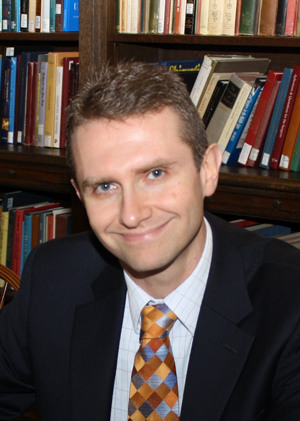
Keynote Speaker Walter S. Gilliam, PhD
Walter S. Gilliam is the Director of The Edward Zigler Center in Child Development and Social Policy and Associate Professor of Child Psychiatry and Psychology at the Child Study Center, Yale School of Medicine. He is a member of the board of directors for ZERO TO THREE (National Center for Infants, Toddlers and Families) and Child Care Aware of America (National Association of Child Care Resource and Referral Agencies); a research fellow of the National Institute for Early Education Research (NIEER); and a former Senior Advisor to the National Association for the Education of Young Children (NAEYC). Dr. Gilliam is co-recipient of the 2008 Grawemeyer Award in Education for the coauthored book A Vision for Universal Preschool Education.
Dr. Gilliam’s research involves early childhood education and intervention policy analysis (specifically how policies translate into effective services), ways to improve the quality of prekindergarten and child care services, the impact of early childhood education programs on children’s school readiness, and effective methods for reducing classroom behavior problems and reducing the incidence of preschool expulsion. His scholarly writing addresses early childhood care and education programs, school readiness, and developmental assessment of young children. Dr. Gilliam has led national analyses of state-funded prekindergarten policies and mandates, how prekindergarten programs are being implemented across the range of policy contexts, and the effectiveness of these programs at improving school readiness and educational achievement, as well as experimental and quasi-experimental studies on methods to improve early education quality. His work frequently has been covered in major national and international news outlets for print (e.g., New York Times, Wall Street Journal, USA Today, Chicago Tribune, LA Times), radio (e.g., NPR), and television (e.g., CNN Headline News, NBC TODAY Show, CBS Early Show, ABC Good Morning America, ABC World News Tonight, FOX News). Dr. Gilliam actively provides consultation to state and federal decision-makers in the U.S. and the People’s Republic of China.
Jim Wike, ASLA, CLARB, presenting:
An Approach to Successful Outdoor Classroom Design
With more than 30 years of professional landscape architectural practice, and being licensed in 12 states, Jim has assembled a wide variety of land planning and site design experience in a multitude of situations. As Nature Explore Classroom Design Director, Jim is responsible for the site planning of parks, hospitals, schools, churches, multifamily housing, single family housing, commercial centers and various public works projects. His major areas of concentration are site analysis, land use studies, conceptual design, preparation of construction documents, competitive bid administration, and construction administration.
He has taught several classes in landscape architecture at the college level in Memphis and in North Carolina. Jim holds a Bachelor of Science in Landscape Architecture from the University of Kentucky and a Master of Landscape Architecture from North Carolina State University. He holds a Council of Landscape Architectural Registration Board certification and is a member of many local, state and national landscape architecture associations. He is on the Leadership Team of the International Nature Action Collaborative for Children.
To discover more about Nature Explore, visit http://www.natureexplore.org/
For additional information on other upcoming Nature Explore workshops, visit http://www.natureexplore.org/workshops/designprofessionals.cfm
Dr. Dieter Breithecker, M.A., Ph.D. presenting:
Bodies in Motion – Brains in Motion
As a health and kinetics scientist, Dr. Breithecker studies how the human body affects learning and productivity. During his career, Dr. Breithecker has focused on applying his research to the design of school furniture to promote movement and cognitive development. His design solutions meet behavioral and socio-spatial requirements, improve posture for children and youth with back exercise programs, and challenge and support children with a history of exercise deficiency.
Dr. Breithecker is currently the Head of the Federal Institute for Posture and Mobilization Support in Wiesbaden, Germany and a member of the International Ergonomics Association – ECEE Ergonomics for Children and Educational Environments. His past empirical studies include the significance of preventative behavioral and socio-spatial measures within the total school environment, the ergonomic school furniture requirement for the classroom of today, and the complexity of posture changes while seated and its effect on comfort and mental alertness.
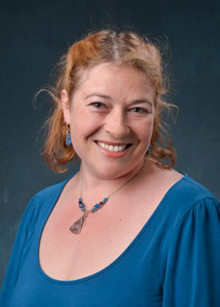
Anne O. Davidson presenting:
Proactive Design for Education: A Pragmatic Approach to Supporting Access and Inclusion
Anne O. Davidson is a Doctoral student in the School of Education at the University of Colorado, Boulder. During her six years as a special education teacher she worked with diverse students, between the transition into kindergarten and the transition into the community at age 21, to ensure equitable opportunities to access education and community. Teaching in schools ranging from segregated buildings to full inclusion campuses she addressed the challenge of overcoming design features that present barriers to student safety or full access to educational spaces. Although each student had different challenges for very different reasons, the challenges remained in parallel- how to ensure each student was able to benefit from their educational opportunities by creating spaces that appropriately supported all students’ needs.
Before Ms. Davidson began her graduate studies she worked to modify spaces to accommodate the personal and safety needs for students with physical, cognitive and learning disabilities while providing equitable inclusion for all students.
Currently, she is working as a research assistant supporting research on district wide implementation of a research based strategy that supports instructional inclusion, Collaborative Strategic Reading (CSR). Working in the department of Educational Equity and Cultural Diversity, she focuses on sustainable practices for implementing educational design for the equitable inclusion of all students.
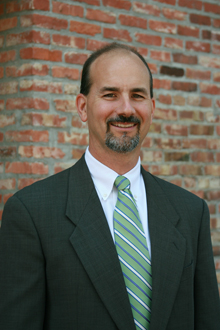
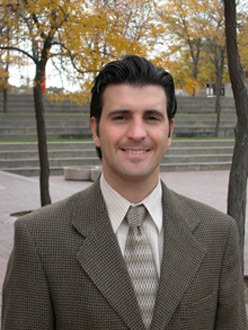
Joe Lang & Ed Buglewicz presenting:
Connecting Environment to a Quality Early Education Program
For over a decade, Ed Buglewicz and Joe Lang have led the planning and design of many early childhood education facilities, from Maine to California, that serve over 4,000 children annually. Their work includes private as well as public developments and collaborating with leaders in early childhood programming, research, and philanthropy such as the Ounce of Prevention Fund, Frank Porter Graham Child Development Institute at the University of North Carolina, and the Buffett Early Childhood Fund.
Educare, a research-based program that prepares young, at-risk children for school, has been a foundation of their practice. Educare schools are dramatically changing the life trajectories of thousands of children growing up in families facing the greatest obstacles to success, and changing the way America thinks about early education. Each Educare school is a comprehensive early-childhood program aimed at preventing the achievement gap that takes root between children in poverty and their middle-income peers long before they enter kindergarten, sending a bold message about the value of investing in the first five years.
In addition to their early-learning work, their 150-person architecture and planning firm, RDG Planning & Design, has worked with many higher-education clients recently, including the University of Michigan, University of Nebraska, Fairfield University, and Newman University. Ed and Joe have been speakers at the Council of Educational Facility Planners International, National Association for the Education of Young Children, and Educare Learning Network conferences. Their work has received design awards from the American Institute of Architects, DesignShare for Innovative Schools, and International Interior Design Association, as well as being published as a contributing writer to Infant/Toddler Caregiving: A Guide to Setting Up Environments.

Robin R. Randall, AIA, LEED AP BD+C, presenting:
Biophilic Design in Early Childhood Learning Environments
Robin R. Randall, AIA, LEED AP BD+C, is a licensed architect, educator, and environmentalist. Founder and president of ED lab INC, she is dedicated to connecting personally to each project and designing environments that support a culture of inquisitiveness, client community and sustainability.
Robin is an educational design expert with 26 years experience programming, planning and creating learning places. Frequent speaker, author and award winning designer she is inspired by learning strategies and environmental research through application in projects. Her leadership in a client focused process integrates the science of learning, the language of nature and the art of innovation to create customized environments for all learners.
Robin is a leader in sustainable design practice providing educational seminars on project design and application, coordinating sustainability client workshops, developing resources for practice and advocating regenerative architecture.
As a Professor at Judson University she provides practical experience in application through design, programming, planning and research. Her third and fourth year design courses and graduate programming and research practice classes explore the impacts of Living Building Challenge to design and client communication. Students work with Community Client collaborators to provide outreach in sustainability and practice and in applied research. Design studios investigate how environments work as teaching tools for environmental responsibility.
2012 Early Childhood Design Conference
The inaugural Early Childhood Design Conference was held in Denver on October 19th and 20th, 2012.
Speakers
Judy Harris Helm, Ed.D. helps schools integrate research through her consulting company, Best Practices, Inc. She is a national and international speaker and trainer on best practices in education. She has authored seven books which have been translated in five languages and distributed internationally. Her books are published by Teachers College Press, Columbia University. Dr. Helm provides support and design consultation for early childhood and elementary school planning, most recently serving as the principal design consultant for two new birth-8th grade 21st Century Learning Centers featured in Educational Leadership’s Re-Imagining Schools issue (April 2010). She also served as the principal design consultant for a public school early childhood center which serves children at risk and children with special needs.
Books by Judy Harris Helm:
Windows on Learning: Documenting Young Children’s Work
Building Support for Your School: Using Children’s Work to Show Learning
Young Investigators: The Project Approach in the Early Years
The Power of Projects: Meeting Contemporary Challenges in Early Childhood Classrooms
Teaching Your Child to Love Learning: A Guide to Projects at Home
Teaching Parents to Do Projects at Home: A Guide for Parent Educators
Building Support for Your School: Using Children’s Work to Show Learning
To listen to Dr. Helm’s latest podcast click here and scroll down to the podcast entitled Bridging Students, Educators, & Designers for Educational Facilities
Victoria Bergsagel is passionate about designing schools where all students achieve. She founded and directs Architects of Achievement (an international consulting firm) and has a gift for nurturing people’s talents and insights to arrive at inspired solutions. Harvard-educated, Victoria has been a teacher, principal, adjunct professor, community relations director, and school district administrator. As director of educational design in a large school district, she led the educational program planning upon which the construction of new schools was based. She also served as a director of educational partnerships at Talaris Research Institute where she worked with researchers and educators to conduct, integrate, and interpret the world’s leading brain research. She has consulted to governments in Central America, served schools in Asia, Europe and the Middle East, and has assisted school networks, districts, state agencies, higher education, independent schools and business partners throughout the United States. One of her latest projects was recently named the best school design in the nation by the National School Boards Association and the best design in the world by Council of Educational Facility Planners International. Victoria has lectured at Berkeley, USC, Lewis and Clark College and Seattle Pacific University, written a book (Architecture for Achievement), produced videos, conducted research, and published several articles on school design. Bridging the worlds of education and architecture as a design strategist, featured speaker, and design jurist, she also serves on the CEFPI Foundation Board of Trustees and is a Founding Board Member of Construction for Change. Victoria’s strategic approach has garnered her a reputation as one of the most sought-after leaders in school design today. Whether working in the US or abroad, Victoria’s passion lies in helping people realize their hopes and dreams for their communities and children.
- Chef Ann Cooper is a celebrated author, chef, educator, and enduring advocate for better food for all children. In a nation where children are born with shorter estimated life expectancies than their parents because of diet-related illness, Ann is a relentless voice of reform by focusing on the links between food, family, farming and children’s health and wellness.
A graduate of the Culinary Institute of America, Hyde Park, NY, Ann has been a chef for more than 30 years including positions with Holland America Cruises, Radisson Hotels, Telluride Ski Resort as well as serving as Executive Chef at the renowned Putney Inn in Vermont. She has been featured in The New Yorker, The New York Times, The Washington Post, The San Francisco Chronicle, The Chicago Tribune, Newsweek, and Time Magazine and has appeared on NPR’s ‘Living on Earth,’ ABC’s Nightline, CNN, PBS’ To The Contrary and the CBS Morning Show and many other media outlets. Ann has shared her knowledge and experience by speaking at the Smithsonian Institute, the National Restaurant Association, the Heifer Foundation, Chefs Collaborative, the International Association of Culinary Professionals and numerous conferences. She has been honored by SLOW Food USA, selected as a Kellogg Food and Society Policy Fellow, and awarded an honorary doctorate from SUNY Cobleskill for her work on sustainable agriculture.
Ann is the author of four books: Lunch Lessons: Changing the Way We Feed Our Children (2006), In Mother’s Kitchen: Celebrated Women Chefs Share Beloved Family Recipes (2005), Bitter Harvest: A Chef’s Perspective on the Hidden Dangers in the Foods We Eat and What You Can do About It (2000) and A Woman’s Place is in the Kitchen: The Evolution of Women Chefs (1998). She is past president of The American Culinary Federation of Central Vermont, and past president and board member of Women’s Chefs and Restaurateurs. She also served on the U.S. Department of Agriculture National Organic Standards Board, a Congressional appointment, and was an Executive Committee member of Chefs Collaborative – all in an effort to raise awareness about the value of healthful, seasonal, organic, and regional foods.
Ann’s research for and writing of A Bitter Harvest provided a true epiphany for this always curious and proactive chef. No longer could the environmental and health facts be ignored when it came to producing food in this country. Ms Cooper’s career shifted from primarily cooking to a path of cooking, writing, and public speaking – all advocacy work for a healthier food system. There is no doubt that Ann is an accomplished chef, however her focus is now on using her skills and background to create a sustainable model for schools nationwide to transition any processed food based K-12 school meal program to a whole foods environment where food is procured regionally and prepared from scratch. In 2009, Ann founded Food Family Farming Foundation (F3) as a nonprofit focusing on solutions to the school food crisis. F3’s pivotal project is The Lunch Box – a web portal that provides free and accessible tools, recipes and community connections to support school food reform.
Chef Ann is happily working overtime as a Chef, Nutrition Services Director, Consultant, Author, Public Speaker, and Advocate because she sees a need for change and has the gifts to help. She envisions a time soon when being a chef working to feed children fresh, delicious, and nourishing food will no longer be considered “renegade.”
For more information please see:
- http://www.chefann.com
- http://www.foodfamilyfarming.org
- http://www.thelunchbox.org
- http://www.saladbars2schools.org
Meredith Banasiak is a Senior Instructor in the Environmental Design program at University of Colorado Boulder. Meredith’s research and teaching interest lies in examining the connection between the environment, body and brain using the lens of cognitive science in order to inform design applications which support human functionality.
As a Research Associate with the Academy of Neuroscience for Architecture (ANFA), Meredith collaborated with neuroscientists and architects to promote cross-disciplinary research. She has developed her research interests at the University of Colorado as a member of the interdisciplinary Lifelong Learning and Design (L3D) Center and as a Faculty Affiliate with the Children, Youth and Environments (CYE) center. In 2008, Meredith received an American Institute of Architects (AIA) ‘Research for Practice’ (RFP) grant for her project, “From Benchtop to Bedside: Transferring research lessons learned in an undergraduate program”. She is currently Co-PI on an NEA funded project aimed at promoting the integration of Universal Design into the University Curriculum.
A thoughtful and valiant designer, Anne Weber has 28 years of experience in Architecture and Urban Design with a concerted focus in the evolution of spaces for students and educators. With a Master Degree in Architecture from the School of Architecture in Lyon, France and a Master Degree in Urban Design from the University of Colorado Denver, her passion has been actualized in the planning and design of over 100 public, private and charter school projects. Anne joined BWG Architects in 1992 and became a principal and partner in 2007. She has cultivated a deep concern for the educational environment and specifically the design of space which fosters curiosity to learn. Her five year concentration in early childhood education has exhibited the vow that the physical environment supports the philosophy of the program. An allegiance to sustainable principles and humane environmental aesthetics is demonstrated in sensitive attention to outdoor spaces created by buildings. Commitment to several organizations which impact the awareness of the educational sphere, Anne serves on the Board of the Rocky Mountain Chapter of the Council for Educational Facility Planners and the Board of Appeal for the Colorado Division of Fire Safety.
Betsy Hoke is a veteran Montessori teacher and administrator who served as Head of School for 29 years at Montessori School of Evergreen, a private school serving 300 children ages 21/2 – 14. A specialist in the field of early childhood education, through her company, Mentoring Montessori and More, she consults with private, public and charter schools and early childhood centers in Colorado and beyond, providing support, in service workshops, parent seminars and evaluations of schools and their faculty members. She has designed a number of new environments and learned by trial and error what works and doesn’t with young children.
Betsy is currently an instructor at Montessori Education Center of the Rockies, working with prospective Montessori teachers at the early childhood and elementary levels. She presents frequently at regional and national conferences and works with the Gurian Institute to provide workshops on brain-based gender differences that enable parents and teachers to better understand and meet the needs of boys and girls. Last May she spent four weeks volunteering at a school in Tanzania to establish a Montessori program. She plans to continue her work there on an annual basis.
Heidi Heissenbuttel has worked at Sewall Child Development Center promoting inclusion for young children of all ability levels for 25 years as teacher, program director, and currently as CEO. With a Master’s degree in Early Childhood Special Education, she has collaborated with a variety of professionals and parents to ensure that children who learn differently can thrive in early childhood settings.
An engaging and visionary leader, Butch guides the practice in pursuit of values-based work that enriches community. His inclusive style encourages an integrated approach to design with shared responsibility — together with subconsultants and peers — to push for the best work possible. An impassioned advocate for learning environments, Butch leads projects for K-12, college and university clients. He is a gifted communicator who is often called on to help educational institutions pinpoint program needs, articulate ambitious goals and create a seamless design process that delivers excellent architectural solutions with a high degree of community engagement. Butch speaks frequently at AIA national conventions and organizations focused on school facilities planning and administration. He serves as a frequent juror for AIA awards programs at the state and national levels, including the 2008 and 2009 Committee on Architecture for Education (CAE) Educational Facility Design Awards. In 2007, he chaired the AIA CAE Fall Conference and serves on the AIA CAE Leadership Group, applying his knowledge of design innovation trends to advance educational and environmental priorities. He was also a founding member of the governor-appointed Washington State Capital Projects Advisory Review Board.
John Dickinson is one of the nation’s most prominent deaf architects. A recognized expert in his field, John is often invited to speak, write and participate in conferences and lectures. Mr. Dickinson is the founder of Dickinson + Partners, a architectural planning firm that offers collaborative visioning, programming, design and planning expertise to school districts throughout the country.
A wide range of rich experiences have deepened John’s perspective, allowing for a holistic approach virtually unparalleled in the industry. Creating architecture with some of the most renowned educational architecture firms, he collaborates as an educational facility planner with some of the country’s most thoughtful clients.
For over 25 years, John has planned and designed meaningful places for learners across the country. Through an exceptionally creative approach, he has designed schools and living spaces with both focused and playful spaces. As you review his portfolio, you will notice the breadth of artistic expression that results from listening to his client’s desires. Working with a focus on community, John is a master at bringing together the school community, parents, students, and the larger community to create consensus and engagement.
Prior to founding Dickinson + Partners, John was Principal and Director of Special Needs Studio at Winter & Co. an Architectural and Urban planning firm in Boulder, Colorado.
DESIGN AWARDS & SUMMITS
AIA Award of Educational Design Excellence: Columbine Senior High School, Littleton, CO
PROFESSIONAL AFFILIATIONS
American Institute of Architects (AIA)
Colorado School for the Deaf and the Blind, Board of Trustee 2004-Present
Schools for the Children of the World
National AIA Continuing Education Curriculum Design
American Architectural Foundation (AAF)
Council of Educational Facility Planners International (CEFPI)
Association for the Advancement of International Education (AAIE)
National Association of the Deaf (NAD)
National Autism Association (NAA)
With more than 30 years of experience as a school architect, Richard Dewar is recognized for his ability to lead school districts through complex decision-making, planning/designing and successful referendum processes. His passion is centered on educating students and clients alike. As an exceptional team leader and resource to his clients, Richard’s projects have received numerous recognitions from educational organizations.
Wight & Company, PK-12 Design Leader
With over 20 years of experience in educational design projects, Mr. Siepka brings a highly collaborative approach to all of his work. For him, architecture is a team sport. Through focused dialogue and an emphasis on environmental stewardship, he has designed numerous award winning early childhood centers that express the unique qualities of its stakeholders and demonstrate a keen sensitivity to the needs of these special 21st century learners & educators.
With over 17 years of design experience in outdoor learning and play environments, Kerry White, RLA, founded Urban Play Studio to create outdoor spaces to enhance the quality of people’s lives. Her focus is on healthy communities with a passion for play believing well-designed public space contributes to healthier, happier communities. In addition to park, athletic facility and destination playground work, her experience includes work on over seventy schools for over twenty private, charter and public school districts. She has been integral to the success of Denver’s Learning Landscape elementary school playgrounds both through her innovative design work and as an instructor in the Landscape Architecture program at the University of Colorado-Denver.
She collaborates frequently with students, parents, educators, occupational therapists, custom play builders and other professionals to create exceptional outdoor environments that are environmentally sensitive and reflect an authentic sense of place. In her continued pursuit of connecting children with nature, Kerry’s recent training includes Nature Explore’s Leadership Institute and the Chicago Botanic Garden’s Healing Through Nature program.
Jesse Clark LEED® AP, RLA (Colorado #853), Principal, Landscape Architect
Jesse is a registered and licensed landscape architect in the State of Colorado and a LEED® accredited professional with more than sixteen years of professional experience in design and construction, and a diverse professional portfolio of highly sustainable projects with public and private clients on work including park design, play area design, natural area restoration, athletic facility design, and trails and recreation planning. Mr. Clark founded Stream Design to focus on exceptional projects that are functional, educational, and beautiful. In particular, he takes pride in designing educational spaces that embrace nature and heighten the awareness of our surroundings – often incorporating manipulated landforms and drainage to manage stormwater responsibly and educate people about natural processes.
Mr. Clark has been invited to present on the topic of sustainable park planning and design including his presentation to Denver Parks and Recreation staff “Challenges and Strategies for Sustainable Park Development”. He has also served as an adjunct instructor at the University of Colorado for a design studio which explored alternative approaches to storm water management within the urban environment. His work has been recognized nationally and locally with awards and publications by ASLA, the USGBC, Topos Magazine, and includes the Hideo Sasaki Interdisciplinary Scholarship, and an Award of Outstanding Service from the College of Architecture and Planning at the University of Colorado.
Most recently, he has led public involvement processes, design, construction documentation, and provided construction services for more than $30 million in Colorado Front Range area parks and school projects. He is currently leading the site design for a 4 acre, 50 family Habitat for Humanity project where the natural drainage ways and open spaces are being designed for a variety of play and experiential interpretive opportunities.
Presentations
Conference topics included:
- Neuroscience research on learning environments
- Environments that foster creativity
- Sustainability
- Daylight harvesting and learning
- Expeditionary learning
- Acoustics, texture and color
- The role of the environment in fostering play and socialization
- Renovation and repurposing strategies
- Selection of furniture, fixtures and equipment
- Outdoor Learning
- Health, safety and security
- Food and nutrition
Friday’s Presentations
Friday Keynote Address
Building Brains by Building Spaces
Application of Neuroscience to
Early Childhood Environments
Dr. Judy Harris Helm
8:15 am
Our intelligence is shaped by our experiences and the experiences that students have in schools and centers are often shaped by those spaces provided for them. If we understand that “building” brains is imperative to be successful in the future, what kind of buildings do we need to design to support them? This keynote is based on our current understanding of the burgeoning realm of neuroscience and environmental psychology. The audience is introduced to how the brain is shaped by its experiences and how the components of care and design can contribute to the creation of adults who are smart, creative, and efficient learners. Topics include sensory processing (sound, color, air quality, space, light), socialization areas, emotional safety, connection with outdoor environment, private space, and culture. Set against a backdrop of the skills necessary for success in the 21st century, this research provides insights for designers and educators about the types of spaces that will support the acquisition of those skills.
Participants will:
- Gain an understanding of the current status of neuroscience research and what we now know about how the brain and learning is shaped by experience.
- Understand facility implications from neuroscience research by viewing project examples
Designing a Nurturing Learning Environment
9:30 am Panel Discussion
Panelists
Betsy Hoke Veteran Montessori teacher and administrator
Heidi Heissenbuttel President and CEO of Sewall Child Development Center in Denver
Moderator
Anne Weber Williams Bennet Wagner Grody Architects, PC
What are the physical characteristics of the spaces in an Early Childhood Education Center which create safety & comfort while fostering the curiosity to learn through discovery? This panel discussion will address varying needs of children viewed through the Montessori philosophy and Sewall Program approach inclusive for children of all abilities including autism, sensory and other behavioral issues. You will learn the top 10 mistakes to avoid in designing a nurturing environment
These are the 4 learning objectives for this panel discussion:
- Understand the physical characteristics of a safe and nurturing educational environment the 2 ½ -5 year old.
- Explore and discuss how this interior and exterior environment can support creativity.
- Review how this environment should be planned to support children of all abilities.
- Learn the top 10 mistakes to avoid.
Lunch Lessons: Changing the Way We feed Our Children
Chef Ann Cooper
10:30 am
During her presentation “Lunch Lessons Changing the Way We Feed Our Children,” Chef Ann Cooper will discuss the state of school food in our country. Cooper will begin by outlining the challenges in the current school food system, continue on to possible solutions and finish with specific tools that school food professionals, advocates and parents can use to ensure that all children have access to delicious healthy food everyday in schools.
Designing for Students with Specialized Needs
John Dickinson, AIA
1:30 pm
Case Studies in Sustainability and Experiential Learning
Butch Reifert, FAIA, Mahlum Architects
2:30 pm
Session Abstract
In his book, Last Child in the Woods: Saving Our Children from Nature-Deficit Disorder, Richard Louv writes that today, kids are well aware of the global threats to the environment, but their physical contact along with their intimacy with nature on a day-to-day basis, is fading. This session will explore the connection between learning and the natural environment by presenting the following two recently completed early learning center case studies: Early Childhood Center- Mount Hood Community College Seamless transitions between indoor and outdoor learning and play are key to the design of the Early Childhood Center at Mount Hood Community College. This project vision was identified during early pre-design workshops, and fueled spirited collaboration between the owner and design team from day one. Joint research into the nature’s influence on children’s intellectual development – with particular attention to Richard Louv’s book, Last Child in the Woods, and the concept of “nature deficit disorder” – inspired the development of outdoor spaces, transition points between inside and outside, as we well as design of the interior. Moss Street Children’s Center, University of Oregon Guided by the University’s teaching philosophy, the design cultivates experiential learning. Five distinct buildings mark the perimeter of a generous courtyard anchored by an historic Eastern water oak, providing a safe enclosure for children that strengthens a connection to the environment. Movable walls offer flexibility to create intimate learning spaces or open circulation for more active play. Creating a sense of indoor-outdoor unity, windows invite light in from two sides and natural materials express commitment to sustainability. Building systems contribute to student engagement – even the radiant heating system works at the child’s level. Opportunities for hands-on learning extend to such features as a rainwater catchment system that directs flows to bio-swales along an inviting stream bed kids can see and touch. The Moss Street Children’s Center was recognized with the 2008 Oregon Department of Energy State Energy Efficient Design Award. The Children’s Center is the first project to comply with the University’s Sustainable Development Plan which includes compliance with State of Oregon SEED program requirements as well as conformance with strategies for universal design and LEED equivalency.
Learning Objectives
01. Explore essential elements to support nature-based play in an urban environment;
02. Explore techniques that provide seamless transition between the interior and exterior in support of
experiential teaching and learning;
03. Explore strategies in sustainable design that actually contribute to and encourage child engagement;
04. Discuss ideas for effective partnering to gain maximum value within the built environment.
A Prelude to Success – Early Childhood Environments that Inspire
Craig Siepka and Rick Dewar, Wight & Company
3:30 pm
Quite often early childhood programs have been relegated to under-sized, “left-over” space and unused classrooms which were designed for older children and with a different educational model in mind. EC staff and students are left to make due or adapt to conditions that are less than ideal for their specific needs. In recent years, however, the paradigm has shifted. We know more about how children learn and appreciate the importance of engaging them before entering compulsory grade levels. With this deeper understanding comes the opportunity to rethink how the environments that we create for our youngest leaners can more effectively support and enrich their educational experience.
This presentation will focus on the identification of key environmental attributes and qualities inherent in responsive instructional facilities designed for those aged 3-5 years. Detailed case studies will be provided to illustrate each characteristic with special emphasis on outdoor activity venues and the role nature can play in the success of early learning settings. Attendees will be asked to consider EC environments in a larger context and as intense, customized examples of the current thought being applied to a broader spectrum of educational projects. Representatives from the nationally recognized Early Learning Center addition in Community Consolidated School District 62, Des Plaines, Illinois will be available to share their thoughts after having completed their first year living and working in the center.
Learning Objectives:
- Help conference attendees explore the possibilities of the built environment and develop a greater appreciation for how the indoor and outdoor spaces in which our youngest children live and play can enhance and enrich their dynamic learning experience.
- Identify environmental patterns that comprise healthy, safe and inspiring spaces for children aged 3-5 years old.
- Understand how the identified attributes and qualities compare to recognized national standards for EC design.
- Inspire attendees to think “different” and differently about the environments in which ec students and instructors work, play and learn.
Saturday’s Presentations
Saturday Keynote Address
Is There a Magic Number, Formula or Setting for ECE?
Victoria Bergsagel
8:15 am
The research is clear. The first three years of life are key to shaping a young child’s brain and much of that child’s destiny. In fact, resources allocated to these years yields higher returns than in any other phase of life – so much so that by their late teens, children who have been offered good nutrition, exposed to even the most rudimentary toys and books, and stimulated in infancy by caregivers coached in playing and chatting, actually have higher IQs, better mental health, and lower rates of crime than their less stimulated peers.
In this session, Victoria Bergsagel will draw upon her experience working in a research institute devoted to brain development zero to five, her travel doing educational work in with other countries, and her involvement in the design of early learning environments to share how the settings in which young children play, learn and grow can shape their lives for years to come.
Recently back from work with the Directorate of Education in Norway in September, Victoria will also share some Scandinavian ideas, compare them to exemplary methods in the US, offer a case study or two that offers approaches for how to include children’s design ideas, and discuss models that have resulted in some of the most successful school systems in the world today.
Learning Objectives:
- Explore research that asserts the return on investment in a person’s life peaks in the first three years of life.
- Discern what neuroscience says about how a young brain develops and what you can do to optimize it.
- Discover how other countries approach early learning.
- Learn how adults can empower children to inspire innovative school design.
© 2012 Architects of Achievement
Spaces for Creativity in ECE
Meredith A Banasiak
9:30 am
How might creativity be fostered in ECE curricula and schools? In this session, we will explore theories describing the cognition and development of creativity processes in order to propose activities and related behavioral settings which might support creativity in early childhood education. We will outline potential design strategies for creativity spaces in schools drawing from research evidence grounded in these theories.
Learning objectives:
At the end of this program, participants will be able to:
– Identify theories describing creativity as a cognitive process and a learning mechanism
– Correlate research evidence defining creativity with curricular activities that support creative processes
– Outline evidence-based design guidelines, strategies, and design patterns for spaces which support creativity
– Employ design strategies to support creativity using a sample ECE creativity center project
The Nature of Outdoor Learning
Kerry White and Jesse Clark
10:30 am
The Nature of Outdoor Learning will touch on current national trends in outdoor play and learning environments that are reconnecting children with their outdoor environment. From both a designer and educator perspective, we will explore research-based guiding principles for outdoor classroom design and discuss principles that result in developmentally comprehensive, engaging and inspiring classrooms. Case studies will be looked at with best practices for executing successful spaces such as maximizing resources with multifunctional design; how to deal with messy spaces and messy kids; and creating an outdoor classroom that reflects your school and neighborhood community.
Learning objectives:
At the end of this program, participants will be able to:
1. Define three (3) social and/or health issues facing children in today’s society due to a disconnect from the outdoor natural world.
2. Identify a minimum of eight (8) design elements typically used in a nature-based outdoor classroom to promote healthy and productive learning and play.
3. Identify additional uses for each outdoor classroom space in order to create multi-functional spaces that not only maximize use of space, budgets, and other resources, but that also create more dynamic and high play value spaces.
4. Distinguish between successful and unsuccessful design techniques that create lower maintenance in outdoor classrooms.
Conference Program
Sponsors
